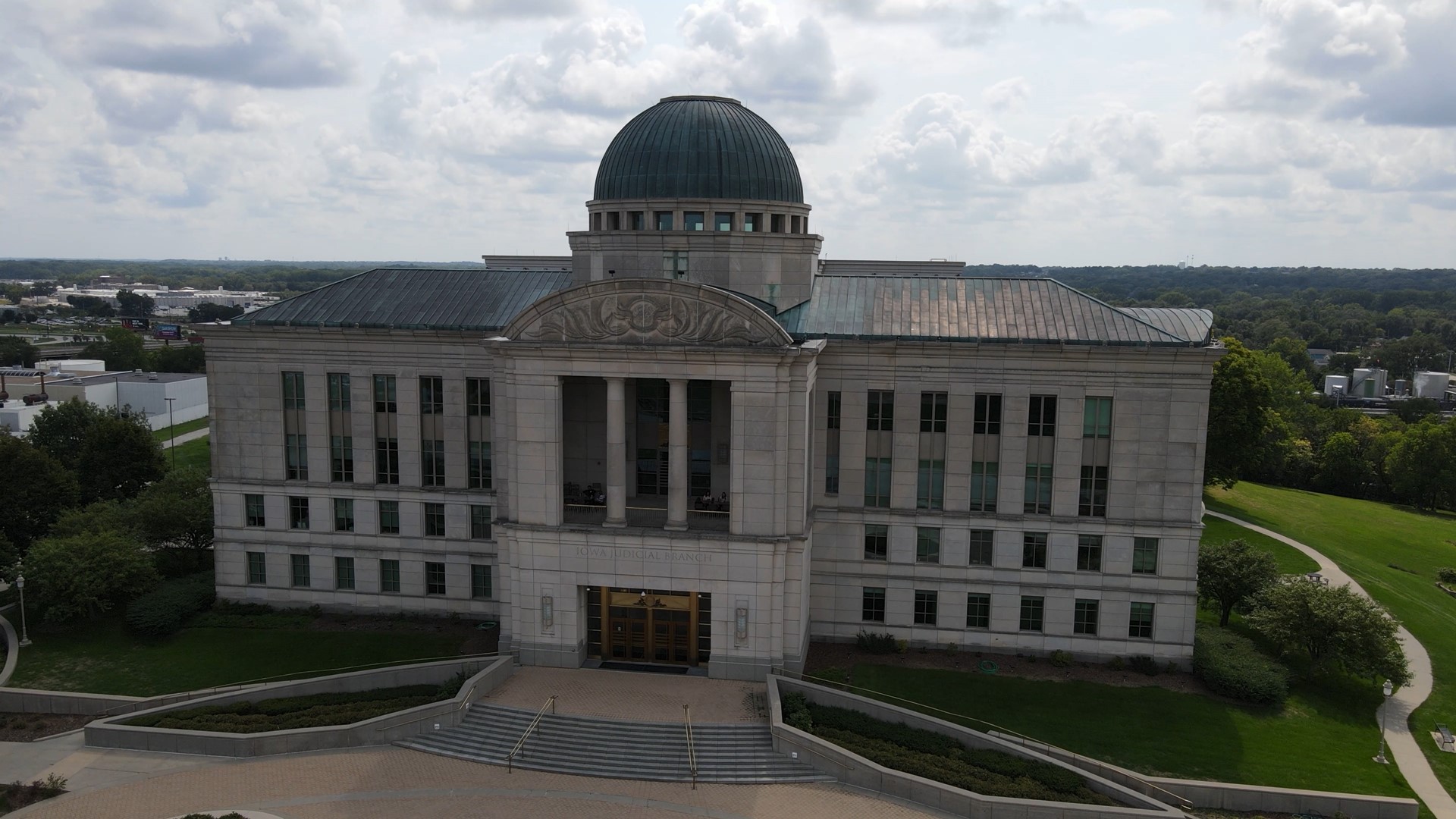DES MOINES, Iowa — Iowa's fight over abortion laws once took center stage again Tuesday before the Iowa Supreme Court.
Lawyers representing Gov. Kim Reynolds want an injunction lifted from her 2018 law that bans abortions after six weeks of pregnancy.
Immediately following that measure's passing and signing, Planned Parenthood of the Heartland challenged the law in court. In 2018, a Polk County judge stopped the law through an injunction, citing the Iowa Supreme Court's 2018 opinion that abortion is a fundamental right under the state's constitution.
Last year, the Iowa Supreme Court reversed that previous opinion and a week later, the U.S. Supreme Court overturned Roe v. Wade. In response, Reynolds asked the courts to lift the injunction on her 2018 law.
Last December, a Polk County judge took on that challenge, ultimately deciding the injunction should remain in place. Reynolds challenged that decision to the Iowa Supreme Court, leading to Tuesday's oral arguments.
Chris Schandevel, an attorney with Alliance Defending Freedom who is representing Reynolds, argued the changes in opinions by both the Iowa and U.S. Supreme Courts change the legal landscape. Schandelev said the 2018 law is constitutional and should be allowed to be enacted.
"Our argument is that the law that the Iowa Legislature passed in 2018 is a reasonable law designed to protect and defend life," he said. "The courts have corrected mistakes they made previously and in holding that there is a right protected by the state constitution that's at issue here. And now that we have a proper understanding of the state and federal Constitution, it's clear that Iowa's attempts to protect life."
Watch the oral arguments
Peter Im, attorney for Planned Parenthood, argued a key piece of this case should focus on what hasn't changed in Iowa. Specifically, the court's earlier ruling that the undue burden standard is the proper guiding principle for how abortion rulings in the case should be handled for now.
"Our understanding and the Iowa law right now, is that undue burden standard governs and under the undue burden standard, the six-week ban is absolutely unconstitutional," Im said. "Just the fact that undue burden remains the standard in Iowa, and under the undue burden test, the ban is just unconstitutional. Full stop."
Justice Dana Oxley recused herself from the hearing, but it remains unclear why the Justice made this decision.
However, should justices split on their opinion 3-3, this would affirm the district court's ruling and the decision of the Polk County judge to keep the injunction in place would become the final ruling.
Reynolds herself was in attendance for the hearing, and issued the following statement following the proceedings:
“I remain optimistic that the Iowa Supreme Court will allow the fetal heartbeat bill to take effect as the Iowa Constitution requires. Since the U.S. Supreme Court overturned Roe v. Wade, decision-making power has been returned to the states. Our citizens and their elected officials have chosen to promote Life and end abortion at a heartbeat, with exceptions for rape, incest, and life of the mother.”
Ruth Richardson, CEO of Planned Parenthood of North Central States spoke with reporters in a virtual meeting following the hearing and had this to say.
" I want to emphasize that abortion remains safe and legal in Iowa right now, but it's hanging by a thread. All Iowans deserve the right to control their bodies, their health care decisions and futures. Banning abortion after about six weeks of pregnancy before most people know they are pregnant, takes away bodily autonomy and inserts politics into health care where it doesn't belong. We know a law banning abortion at about six weeks would have a devastating impact on our patients in Iowa and neighboring communities. If this 2018 law is resurrected, it would walk about 98% of abortions in Iowa, forcing people to travel out of state to self manage their abortions outside of the medical system or be forced into forced pregnancy and birth."
Now that the justices have heard the arguments, it is anticipated they will issue a ruling within 30 days.

